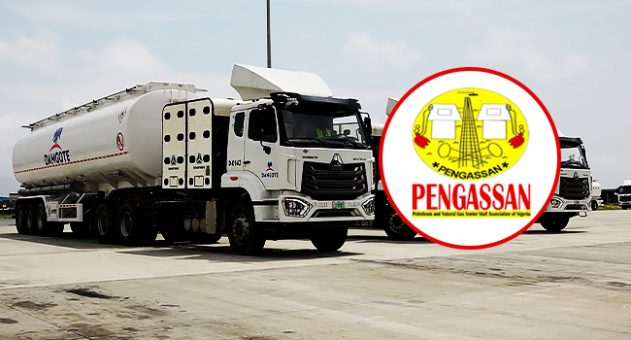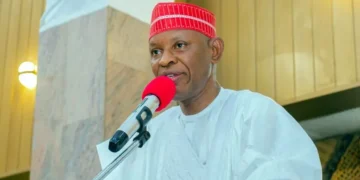What happens when a national economic crown jewel collides head-on with a powerful, organised labour union? Does the massive scale of private investment trump the fundamental rights of its workers? Or does the collective muscle of labour hold the sovereign power to halt the gears of the economy?
This is the multi-billion-dollar question at the heart of the escalating battle between the Dangote Group, led by Africa’s wealthiest tycoon, Aliko Dangote, and the Petroleum and Natural Gas Senior Staff Association of Nigeria (PENGASSAN). The dispute, centred on allegations of the sack of over 800 unionised Nigerian workers, their replacement with expatriates, and anti-labour practices, is more than just a boardroom skirmish; it’s a crucible moment that could fundamentally reshape the landscape of private sector-union relations in Nigeria’s evolving economy.
The Siren Call of the ‘Strategic Asset’
The Dangote Refinery, a gargantuan $20 billion investment, has been championed as a strategic national asset, a tool to alleviate foreign exchange pressure and secure local fuel supply. This status provides the tycoon with a powerful emotional and political shield. When PENGASSAN issues a nationwide directive to cut crude and gas supply, an action the company brands as “economic sabotage”, the government is immediately compelled to intervene.
This dynamic crystallises a long-standing tension in Nigerian industrial relations: the conflict between economic nationalism (the desire for major industrial self-sufficiency) and worker protection (the defence of labour rights as enshrined in law and international conventions). In this new era of large-scale private enterprise driving national infrastructure, the state’s traditional role as the main employer is fading, replaced by a need to regulate powerful private entities.
The state’s current response—appealing to the union to shelve its strike and immediately calling for conciliation shows that the economic risk is too great to ignore. However, the Federal Government must do more than just broker a temporary ceasefire. Its eventual stance will set a critical judicial and operational precedent. Will it shield the ‘strategic asset’ at the expense of established labour laws, effectively creating an ‘industrial untouchable’? Or will it affirm that even the largest private enterprises must operate strictly within the ambit of the nation’s labour framework?
The Power Shift: From Public to Private Sector Showdowns
For decades, the most visible and impactful industrial disputes in Nigeria involved public sector workers: ASUU striking against the government, or medical doctors demanding better wages. These disputes, while disruptive, were ultimately about the public purse. The Dangote-PENGASSAN fight is different. It is a direct confrontation between the organised private sector’s most powerful union and a private corporation of unprecedented scale.
The outcome will test the maturity and efficacy of private sector collective bargaining in a way no previous dispute has. Historically, as the International Labour Organization notes, private sector collective bargaining in Nigeria has been challenging, often hampered by a top-down management culture that resists the balance of power that unionisation requires. The legendary Pan-Africanist and politician, Dr. Nnamdi Azikiwe, once said, “There is plenty of room at the top because very few people care to travel beyond the average route. And so, most of us seem satisfied to remain within the confines of mediocrity.” PENGASSAN’s action is a rejection of this mediocrity; a forceful demand for a seat at the table that acknowledges the power its members wield.
Should Dangote prevail through government intervention that undermines union rights, it sends a chilling message to every private company: unionisation can be managed, or even crushed, if your business is big enough. Conversely, if PENGASSAN forces a retraction, a judicial affirmation of worker rights, and the reinstatement of its members, it will empower unions across the manufacturing, banking, and technology sectors, emboldening them to fight for fairer contracts and compliance with Nigerian Content laws, particularly those concerning the expatriate workforce.
Redefining ‘Anti-Labour’ and the Future of Work
The core of PENGASSAN’s claim: wrongful disengagement of Nigerian workers and their replacement with foreign nationals touches a deeply sensitive nerve about dignity, local content, and fair employment. This isn’t just about wages; it’s about a company’s perceived commitment to the Nigerian workforce that hosts it.
In an environment where youth unemployment remains sky-high, the allegation of choosing thousands of expatriates over capable, unionised Nigerians is a public relations nightmare that carries significant political weight. It also spotlights Nigeria’s labour laws concerning ‘essential services’. While the refinery’s products are vital, its private ownership and commercial nature complicate its classification. The Trade Disputes (Essential Services) Act allows the President to proscribe unions in essential services, a heavy-handed measure that would be fiercely resisted. The government must navigate this carefully, remembering the warning from Obafemi Awolowo: “The children of the poor you failed to train will never let your children have peace.” A disenfranchised, ill-treated, and unrepresented workforce is a breeding ground for social instability, far more damaging than any temporary industrial action.
The Dawn of a New Social Contract
The Dangote-PENGASSAN conflict isn’t just a trade dispute; it’s a battle for the soul of the Nigerian private sector. The outcome will decide whether Nigeria’s economic revolution is one built on ruthless, unchecked corporate power or one founded on a stable, transparent, and mutually-respectful social contract between capital and labour.
The eyes of every union leader, every private sector CEO, and every potential foreign investor are currently fixed on Abuja. The challenge for the government is to demonstrate that its commitment to a robust, investment-friendly economy does not necessitate a retreat on fundamental human and labour rights. When the dust settles, the ruling in this case must not only restore operations at the refinery but, more importantly, reaffirm a core principle for the new Nigeria: that a tycoon’s wealth, however vast, does not grant immunity from the rule of law, and that the right to organise is non-negotiable.



































